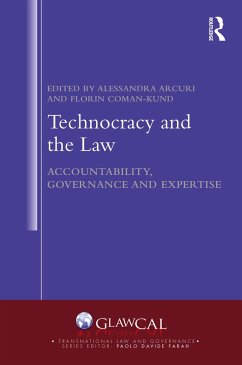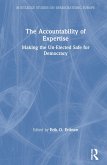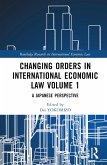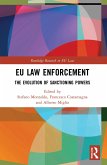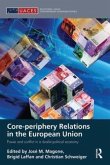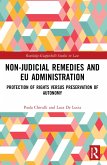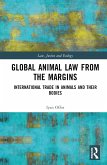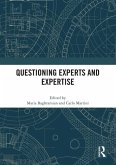Technocratic law and governance is under fire. Not only populist movements have challenged experts. NGOs, public intellectuals and some academics have also criticized the too close relation between experts and power. While the amount of power gained by experts may be contested, it is unlikely and arguably undesirable that experts will cease to play an influential role in contemporary regulatory regimes. This book focuses on whether and how experts involved in policymaking can and should be held accountable.
The book, divided into four parts, combines theoretical analysis with a wide variety of case studies expounding the challenges of holding experts accountable in a multilevel setting. Part I offers new perspectives on accountability of experts, including a critical comparison between accountability and a virtue-ethical framework for experts, a reconceptualization of accountability through the rule of law prism and a discussion of different ways to operationalize expert accountability. Parts I-IV, organized around in-depth case studies, shed light on the accountability of experts in three high-profile areas for technocratic governance in a European and global context: economic and financial governance, environmental/health and safety governance, and the governance of digitization and data protection.
By offering fresh insights into the manifold aspects of technocratic decisionmaking and suggesting new avenues for rethinking expert accountability within multilevel governance, this book will be of great value not only to students and scholars in international and EU law, political science, public administration, science and technology studies but also to professionals working within EU institutions and international organizations.
The book, divided into four parts, combines theoretical analysis with a wide variety of case studies expounding the challenges of holding experts accountable in a multilevel setting. Part I offers new perspectives on accountability of experts, including a critical comparison between accountability and a virtue-ethical framework for experts, a reconceptualization of accountability through the rule of law prism and a discussion of different ways to operationalize expert accountability. Parts I-IV, organized around in-depth case studies, shed light on the accountability of experts in three high-profile areas for technocratic governance in a European and global context: economic and financial governance, environmental/health and safety governance, and the governance of digitization and data protection.
By offering fresh insights into the manifold aspects of technocratic decisionmaking and suggesting new avenues for rethinking expert accountability within multilevel governance, this book will be of great value not only to students and scholars in international and EU law, political science, public administration, science and technology studies but also to professionals working within EU institutions and international organizations.
Five years ago, we might have groaned in despair at yet another title dedicating itself to the conundrum of law and technocracy, or better stated the tense triadic relationship between experts, the legal profession and a burgeoning culture of 'governance', most typically located at the supranational or international level. Surely, with all the millions poured into research on the topic throughout the world, all that needed to be said had been in a myriad of volumes of interdisciplinary contributions? In the meantime, populist efforts to unravel the administrative state (see President Trump), or to undermine the EU beacon of expert governance (Brexit), as well as the growing doubts around the management of the Covid crisis, meant I fell upon this book with an urgency I have not experienced in some time: expertise, governance and law have been both been questioned as never before, the need for them never been more apparent. If I read the book in one sitting however, that was more due to the clarity of the questions posed and theses developed by Alessandra Arcuri and Florin Coman-Kund, and the care with which expert contributors to this volume have responded to them. Above all, our old friend of 'accountability' makes its reappearance in this Volume, being tested for its resilience at theoretical level, as well as within individual sectors, and giving us a new hope where both technocracy and conventional governments have struggled, in particular in their response to crisis. Accountability can empower us citizens, even in these difficult circumstances, making clear the rationales for a complex mesh of political and expert-led decision-making which is indispensable in our modern world.
- Michelle Everson, School of Law Birkbeck College, University of London
Technocracy and the Law is almost preternaturally salient in terms of subject-matter in the contemporary pandemic era. This book attempts to decipher the world of expert technocracy and to explore who these experts are and the role they play in policy making. The challenge of making these 'nobodies' visible and accountable to politics and the law receives nuanced and broad ranging treatment. The link, or otherwise, with accountability is the central axis. The very detailed and often extremely perceptive analysis expands our vision of international and European law.
- Deirdre Curtin, European University Institute
This is a very timely volume. In the wake of the Covid-19 pandemic, an analysis of the accountability of experts is more salient than ever. Elected officials can only govern with the help of experts, but the voters cannot throw the experts out. This well-crafted volume puts the spotlight on the power of experts and disentangles the complex relationships between democratic politics and meaningful expertise accountability.
- Mark Bovens, Utrecht University
Technocracy and the Law offers a novel and timely contribution to the study of accountability and expertise. The book succeeds in weaving together a high-level conceptual analysis of the meaning of accountability in the context of multi-level global governance, with a series of in-depth case studies that examine how accountability is realized in several expert domains, ranging from food safety, to radiological standards, pesticides and toxicology. The book is a must-read for people interested in philosophy of science, global governance, and the regulation of expertise.
- Oren Perez, Bar Ilan University
- Michelle Everson, School of Law Birkbeck College, University of London
Technocracy and the Law is almost preternaturally salient in terms of subject-matter in the contemporary pandemic era. This book attempts to decipher the world of expert technocracy and to explore who these experts are and the role they play in policy making. The challenge of making these 'nobodies' visible and accountable to politics and the law receives nuanced and broad ranging treatment. The link, or otherwise, with accountability is the central axis. The very detailed and often extremely perceptive analysis expands our vision of international and European law.
- Deirdre Curtin, European University Institute
This is a very timely volume. In the wake of the Covid-19 pandemic, an analysis of the accountability of experts is more salient than ever. Elected officials can only govern with the help of experts, but the voters cannot throw the experts out. This well-crafted volume puts the spotlight on the power of experts and disentangles the complex relationships between democratic politics and meaningful expertise accountability.
- Mark Bovens, Utrecht University
Technocracy and the Law offers a novel and timely contribution to the study of accountability and expertise. The book succeeds in weaving together a high-level conceptual analysis of the meaning of accountability in the context of multi-level global governance, with a series of in-depth case studies that examine how accountability is realized in several expert domains, ranging from food safety, to radiological standards, pesticides and toxicology. The book is a must-read for people interested in philosophy of science, global governance, and the regulation of expertise.
- Oren Perez, Bar Ilan University

